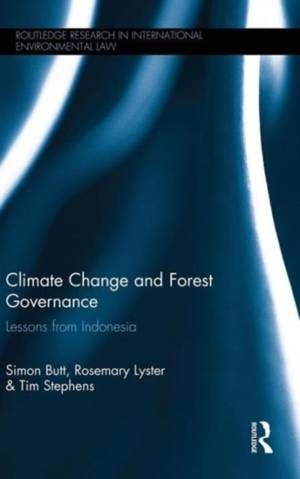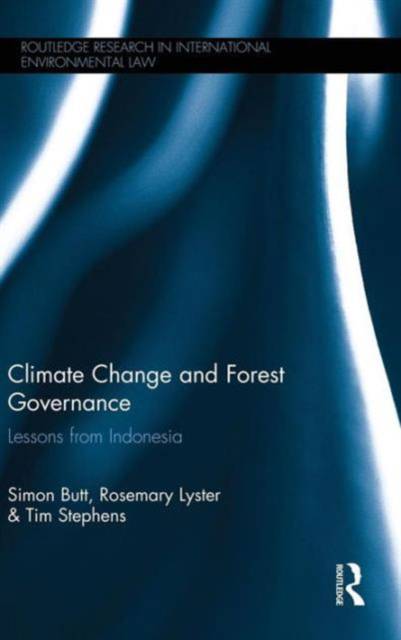
- Retrait gratuit dans votre magasin Club
- 7.000.000 titres dans notre catalogue
- Payer en toute sécurité
- Toujours un magasin près de chez vous
- Retrait gratuit dans votre magasin Club
- 7.000.0000 titres dans notre catalogue
- Payer en toute sécurité
- Toujours un magasin près de chez vous
Climate Change and Forest Governance
Lessons from Indonesia
Simon Butt, Rosemary Lyster, Tim StephensDescription
Deforestation in tropical rainforest countries is one of the largest contributors to human-induced climate change. Deforestation, especially in the tropics, contributes around 20 per cent of annual global greenhouse gas emissions, and, in the case of Indonesia, amounts to 85 per cent of its annual emissions from human activities. This book provides a comprehensive assessment of the emerging legal and policy frameworks for managing forests as a key means to address climate change.
The authors uniquely combine an assessment of the international rules for forestry governance with a detailed assessment of the legal and institutional context of Indonesia; one of the most globally important test case jurisdictions for the effective roll-out of 'Reduced Emissions from Deforestation and Degradation' (REDD). Using Indonesia as a key case study, the book explores challenges that heavily forested States face in resource management to address climate mitigation imperatives, such as providing safeguards for local communities and indigenous peoples.
This book will be of great relevance to students, scholars and policymakers with an interest in international environmental law, climate change and environment and sustainability studies in general.
Spécifications
Parties prenantes
- Auteur(s) :
- Editeur:
Contenu
- Nombre de pages :
- 222
- Langue:
- Anglais
- Collection :
Caractéristiques
- EAN:
- 9781138833623
- Date de parution :
- 29-01-15
- Format:
- Livre relié
- Format numérique:
- Genaaid
- Dimensions :
- 157 mm x 231 mm
- Poids :
- 430 g

Les avis
Nous publions uniquement les avis qui respectent les conditions requises. Consultez nos conditions pour les avis.






